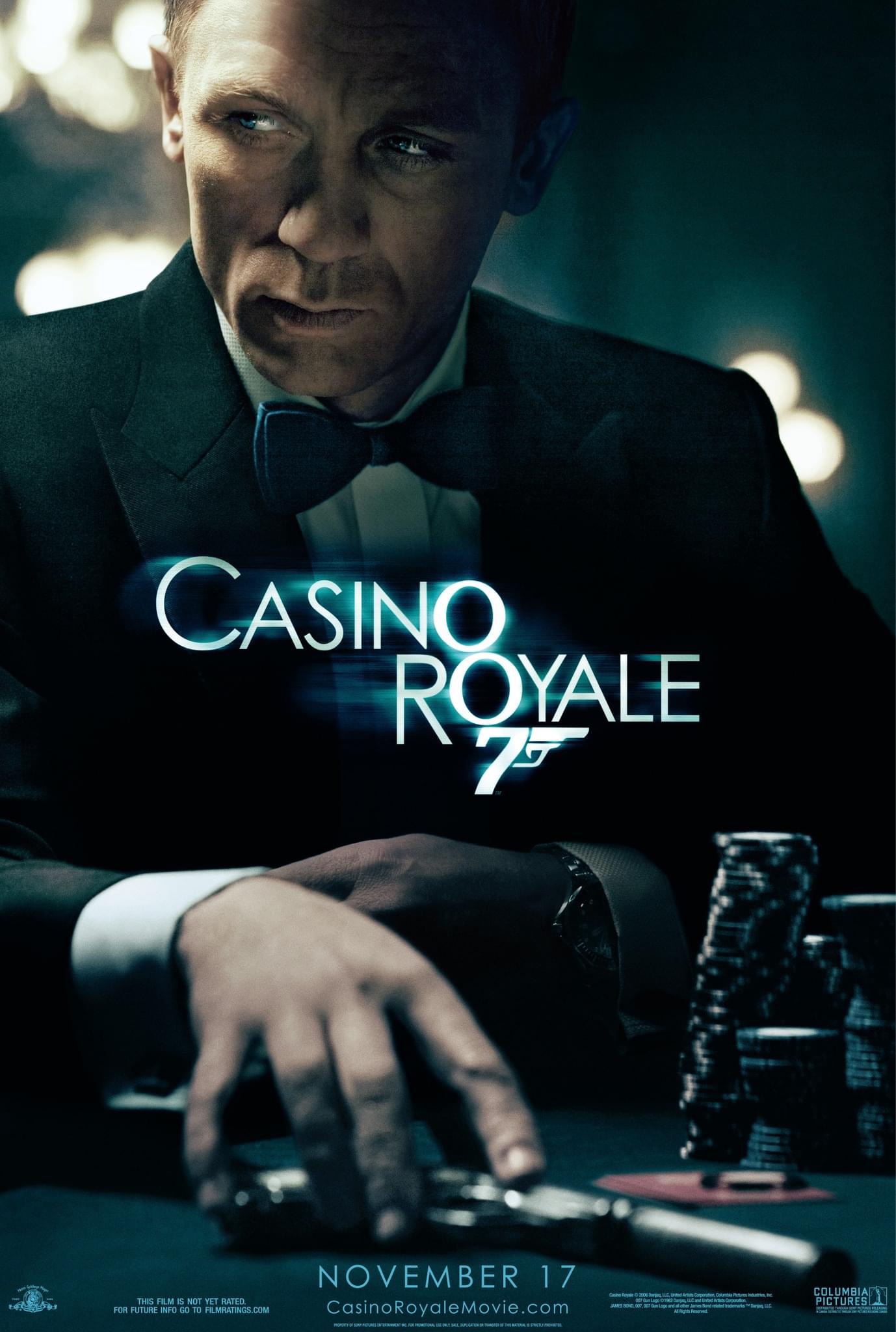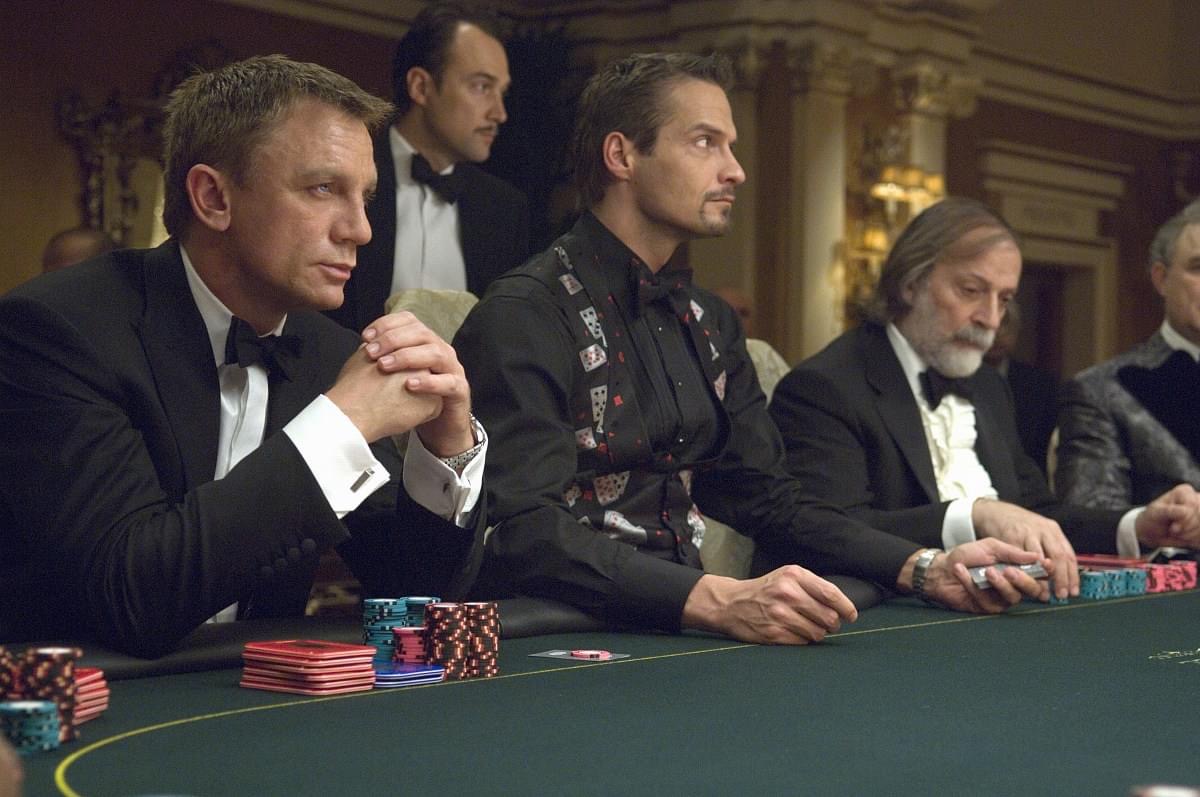Casino Royale (2006)

Casino Royale (2006), directed by Martin Campbell, is a reboot of the James Bond franchise that redefines the iconic character for a new generation. The film, based on Ian Fleming’s first Bond novel, introduces Daniel Craig in his debut as 007, and his performance marked a radical shift from the suave, debonair Bond audiences had come to expect, offering instead a more gritty, emotionally complex, and physically imposing version of the character.
Story and Themes
The plot centers around Bond’s early days as a double-O agent, as he embarks on his first major mission after earning his license to kill. His task is to defeat Le Chiffre (Mads Mikkelsen), a financier for terrorists, in a high-stakes poker game at Casino Royale. The film takes Bond on a rollercoaster of action, intrigue, and betrayal, setting up his character arc as both an unstoppable agent and a man capable of deep emotional attachment.
Thematically, Casino Royale delves into the vulnerability and inner workings of Bond, humanizing him in ways the franchise had not previously explored. Bond’s relationship with Vesper Lynd (Eva Green) is central to this, revealing a softer side of him, one that’s capable of love and heartbreak. The film is not just a traditional spy thriller but an origin story, explaining how Bond becomes the cold, calculating figure seen in later installments.
Characters and Performances
Daniel Craig’s portrayal of Bond is transformative. Gone are the witty one-liners and smooth charm of previous Bonds (like Sean Connery and Pierce Brosnan); instead, Craig’s Bond is ruthless, intense, and physically powerful. His performance brings a sense of realism and grit to the role, setting a new standard for the character. Craig convincingly portrays Bond’s emotional vulnerability, especially in his relationship with Vesper, adding depth to a character often defined by his detachment.
Eva Green’s Vesper Lynd is more than just a Bond girl; she’s a fully realized character who is intelligent, resourceful, and emotionally complex. Her chemistry with Craig is palpable, and her tragic arc plays a crucial role in shaping Bond’s future relationships.
Mads Mikkelsen’s Le Chiffre is an excellent antagonist, albeit more grounded and subtle than some of Bond’s more flamboyant villains. He’s calculating, dangerous, and his understated menace adds tension to every scene he’s in, particularly during the poker game.
The supporting cast, including Judi Dench as M, provides a strong foundation for Bond’s world. Dench’s portrayal of M continues to bring authority and warmth, and her dynamic with Craig’s Bond reflects the tension between the traditional ways of espionage and the more brutal, modern world of covert operations.
Action and Direction
The action sequences in Casino Royale are some of the most intense and grounded in the Bond series. The opening parkour chase in Madagascar is a standout, showcasing Bond’s physicality and determination. The fight scenes are visceral and brutal, far removed from the more fantastical action of previous films, lending a sense of realism and danger to Bond’s missions.
Martin Campbell, who previously revitalized the franchise with GoldenEye (1995), expertly directs the film, balancing action, suspense, and character development. The poker game at Casino Royale is a masterclass in tension-building, where the stakes feel incredibly high despite the limited physical action.
Visuals and Cinematography
The cinematography by Phil Méheux is sleek and stylish, fitting for the Bond franchise while also grounding it in a more realistic world. The locations are beautifully shot, from the gritty streets of Madagascar to the opulence of the Casino Royale in Montenegro. The film’s tone is visually darker, reflecting the moodier, more introspective approach to Bond’s character.
Music
David Arnold’s score pays homage to traditional Bond music while also integrating fresh, modern elements. The theme song, “You Know My Name” by Chris Cornell, is a departure from the typical sultry ballads of Bond themes. Its rock influence matches the more aggressive, hard-edged tone of the film and the character. The iconic Bond theme itself is withheld until the final scene, making its eventual arrival feel earned and triumphant.
Cultural Impact
Casino Royale is widely regarded as one of the best Bond films ever made and is credited with revitalizing the franchise. It helped redefine what a Bond movie could be in a post-9/11 world, focusing on more grounded, realistic espionage rather than outlandish gadgets and over-the-top villains. Daniel Craig’s portrayal was initially controversial, but he ultimately won over fans and critics, leading to a highly successful run as Bond.
The film’s blend of raw action, emotional depth, and thrilling suspense created a template for modern spy thrillers, influencing not only subsequent Bond films but the genre as a whole.
Conclusion
Casino Royale is a masterful reboot that strips James Bond down to his core and rebuilds him for a new era. Daniel Craig’s portrayal of Bond as a vulnerable yet ruthless agent redefines the character, while the film’s taut storytelling, stunning action sequences, and emotional depth elevate it far above typical spy fare. By bringing a sense of realism and introspection to the franchise, Casino Royale remains a high watermark for both Bond and the action genre as a whole.











